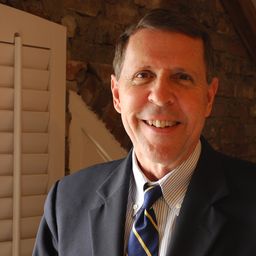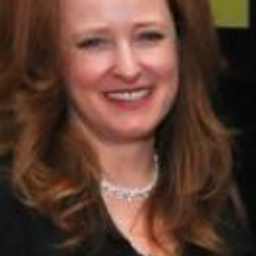
Sessions auxquelles Caitlin Curtis participe
Mardi 7 Juin, 2016
Sessions auxquelles Caitlin Curtis assiste
Vendredi 3 Juin, 2016
What does heritage change for tourism? | Le patrimoine, ça change quoi au tourisme? Ce débat veut interroger les relations entre le tourisme et le patrimoine et dépasser ainsi les idées reçues sur l'antagonisme entre le tourisme "corrupteur" et le patrimoine qui en serait la victime. Il s'agit donc de repenser le tourisme comme un réel acteur du patrimoine, de sa valorisation et de son appropriation, y compris par les populations locales. Cela présuppose, au p...
This forum will explore the current directions of critical heritage studies and what makes ACHS distinctive. Panel members will discuss what the term critical means to them, and what directions they would like to see develop in the future. To help develop an open dialogue, the session will also give considerable time to contributions from the audience.
Welcome addresses and cocktail, followed by the Concordia Signature Event "The Garden of the Grey Nuns". As the opening ceremony and cocktail take place in the former Grey Nuns' Motherhouse, recycled into campus residence and reading rooms by Concordia University, delegates will also have the possibility to discover the video Three Grey Nuns (3 minutes, by Ron Rudin and Phil Lichti. Three Grey Nuns recount their memories of communal life in the Grey Nun’s Motherhouse. Built...
Samedi 4 Juin, 2016
What if we changed our views on heritage? And if heritage has already changed? While, on the global scene, states maintain their leading role in the mobilization of social and territorial histories, on the local scale, regions, neighbourhoods and parishes have changed. Citizens and communities too: they latch on to heritage to express an unprecedented range of belongings that no law seems to be able to take measures to contain, often to the discontent of...
This session explores the different ways late modern states control and translate heritage, both their own and that of others. While modern governments have always played a role in the production and authorization of heritage, late modern states have unprecedented command over the heritage landscape. Coinciding with the postwar economic boom, globalization, and most recently neoliberalism, the state has come to dominate the most vital aspects of heritage, ranging from research (heritage produ...
Heritagization (the various means by which cultural features—either material or immaterial—are turned into a people’s heritage) has recently become, for Amerindian groups, a major means to gain visibility and recognition in the new Latin American social and political landscapes where cultural diversity is endowed with an increasingly critical role. Different forms of cultural heritagization have largely been studied elsewhere, particularly in North America. However, they are far less known in...
Heritage practices often lead to social exclusion. As an "Authorized Heritage Discourse" (AHD) (Smith 2006) may define what is considered to be heritage, a certain set of social values can come to exclude other values. By formulating heritage policies which reproduce the existing AHD government may further such exclusion. Every now and then AHDs are challenged, leading to what political scientists like Ross (2007; 2009) call "cultural contestations" between groups. These are surrounded ...
Much is being made of the perceived breakdown of the nation-state, which was historically configured as a “container” of heritage formations, adopting and perusing local traditions where possible but oppressing them where deemed unsuitable. Migration is seen as eroding the rigid boundaries of this configuration, potentially liberating identities and heritages in the process. This session addresses the relationship between critical heritage and redefinitions of self, other, community and place...
The notion of heritage is closely linked to processes of change. In the Western context, the definition of heritage as "a contemporary product shaped from history" (Harvey 2010) highlights the extent to which our relationship with the past is being continually re-configured. However, there is a future dimension implied in this relationship that is often neglected; to paraphrase William Morris, the sense in which heritage testifies to the hopes and aspirations of those now passed away. Making ...
In recent decades, the growth of the World Heritage industry has necessitated the reconsideration of scale. Formerly dominated by nation-states, some influential international organizations such as UNESCO and its advisory bodies (ICOMOS and IUCN) are now taking a strong role in decision-making through policy-making and implementation. Despite the power of the transnational organization and its relation with states parties, there is a growth of regionalism and “localism” in the heritage indust...
This festive event will offer delegates a taste of one of the iconic dishes of Montreal, the smoked meat sandwich, imported by Jewish immigration from Eastern Europe in the early 20th century. In particular, the tasting will allow a discovery of the products of the renowned international institution Schwartz's, the Hebrew Delicatessen for which Montrealers and tourists alike are willing to wait in long line-ups. During the tasting, “Chez Schwartz,” a documentary produced by Garry B...
Most of what we experience as heritage emerges into conscious recognition through a complex mixture of political and ideological filters, including nationalism. In these processes, through a variety of devices (museums, scholarly research, consumer reproduction, etc.), dualistic classifications articulate a powerful hierarchy of value and significance. In particular, the tangible-intangible pair, given legitimacy by such international bodies as UNESCO, reproduces a selective ordering of cul...
Dimanche 5 Juin, 2016
Lundi 6 Juin, 2016
Space plays a crucial role in the production and meaning-making of cultural heritage. Although space has often been discussed in heritage studies, further critical analysis of the constructive and performative nature of space, in particular that of scale and territoriality, is needed in order to understand the power hierarchies and mechanisms of power in cultural heritage and in various conflicts related to its meanings, ownership, preservation and management. The idea of cultural herit...
Heritage processes vary according to cultural, national, geographical and historical contexts. Since the late 1980s, the phenomenon of contestation in heritage has been increasingly recognized. However, there is still little detailed and situated knowledge about the range of actors present in contestations, the variety of strategies they pursue, the reasoning behind their choices, the networks they develop, and how, from all this, heritage has been and is constructed. More often than not, con...
In addressing the theme of this conference, we argue that archaeology, above and beyond the traditional goals of research and post-excavation analyses, may contribute to economic development, education and the creation of identities and communities. Our session "What does Heritage Change? Case Studies in Archaeology," is divided into two themes starting with archaeological practice through its legislation and management. Contract or commercial archaeology increasingly comprises the vast major...
Involving communities, visitors or the public is frequently presented as one of the major tasks of museums and heritage sites in current global movements toward new collaborative paradigms (Golding and Modest 2013; Watson and Waterton 2011). Co-production is a highly current issue, and a proposed emancipatory solution to the authorized heritage discourse, which seemingly has reached a critical juncture. Scholarship has echoed calls from communities for more direct involvement in the presentat...
This proposal makes the case that heritage’s capacity for change may be dependent on a paradigm shift in how heritage is interpreted. With this paradigm shift in play, a question is then asked: Can authenticity be used as a design driver to resolve how best to incorporate the four pillars of sustainability in a building’s design? The proposal begins with a discussion about the difference between using heritage reactively and proactively. It then presents a brief introduction to the...
Le patrimoine fait aujourd’hui l’objet d’attentions autant que d’agressions et de destructions. Cela peut s’expliquer par les difficultés de son identification ou de sa conservation. Cela peut plus profondément s’expliquer parce que, dès le départ, il célébre un événement ou conserve une mémoire qui peut être ou devenir une source de dissenssions et de conflits politiques. Enfin, sa reconnaissance suscite des gains économiques pour les uns mais des pertes pour les autres. Mais peut-être...
Mardi 7 Juin, 2016
Involving communities, visitors or the public is frequently presented as one of the major tasks of museums and heritage sites in current global movements toward new collaborative paradigms (Golding and Modest 2013; Watson and Waterton 2011). Co-production is a highly current issue, and a proposed emancipatory solution to the authorized heritage discourse, which seemingly has reached a critical juncture. Scholarship has echoed calls from communities for more direct involvement in the presentat...
State dominance in heritage management has been a key area of attention in critical heritage studies. There is now a large body of work discussing how this dominance may result in the prioritization of national perspectives and interests over local ones and contribute to the marginalization of alternative interpretations of heritage by ethnic and religious minorities, immigrants and Indigenous peoples. Conflicts often arise between these groups and state authorities over how to manage heritag...











